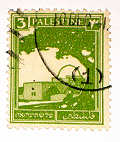 The Office of Foreign Asset Controls (“OFAC”) today issued General License No. 7 authorizing U.S. persons “to engage in all transactions otherwise prohibited by 31 C.F.R. parts 594, 595, and 597 with the Palestinian Authority.” Obviously this General License is the official action that implements the administrations promise to lift sanctions on the Palestinian Authority due to the expulsion of Hamas from the Palestinian Authority.
The Office of Foreign Asset Controls (“OFAC”) today issued General License No. 7 authorizing U.S. persons “to engage in all transactions otherwise prohibited by 31 C.F.R. parts 594, 595, and 597 with the Palestinian Authority.” Obviously this General License is the official action that implements the administrations promise to lift sanctions on the Palestinian Authority due to the expulsion of Hamas from the Palestinian Authority.
Of course, no official action needed to be taken at all. The Palestinian Authority itself had never been officially sanctioned. The PA isn’t listed on the SDN list, nor were “Palestinian Authority Transaction Regulations” or the like adopted by OFAC. Instead, the PA was constructively sanctioned because members of Hamas, which is on the SDN list, had been elected as part of the PA. So, no more Hamas, no more sanctions, no OFAC action or assembly required.
On a broader note, these “secret sanctions” such as those imposed on the PA, and more recently on Nepal, are a compliance headache of the first order. A compliance officer might look at the list of sanctioned countries and the SDN list and never conclude that the Palestinian Authority or the Nepalese Government were sanctioned unless they happened to know, as well, that SDNs had become part of the PA and the Nepalese Government. Granted the sanctions aren’t completely secret because in both cases there were General Licenses ultimately issued which indirectly attest to the difficulties of dealing with the PA and Nepal. Still, here’s a question for export compliance officers: have the Government of Nepal and the Palestinian Authority ever been mentioned in your OFAC compliance programs?

 Posted by
Posted by  Category:
Category: 

 It seems that the story that the prosecutors told to keep Mohammed Alavi in jail pending his trial on charges that he violated the Iranian Sanctions Regulations was just that — a story. On May 31, the trial court issued an
It seems that the story that the prosecutors told to keep Mohammed Alavi in jail pending his trial on charges that he violated the Iranian Sanctions Regulations was just that — a story. On May 31, the trial court issued an  Reader Mike Deal forwarded to me some of the documents filed in the prosecution of Mohammad Alavi, who has been charged with exporting copies of simulation software to Iran in violation of the
Reader Mike Deal forwarded to me some of the documents filed in the prosecution of Mohammad Alavi, who has been charged with exporting copies of simulation software to Iran in violation of the  LogicaCMG, Inc., the U.S. subsidiary of U.K.-based
LogicaCMG, Inc., the U.S. subsidiary of U.K.-based  The
The 

